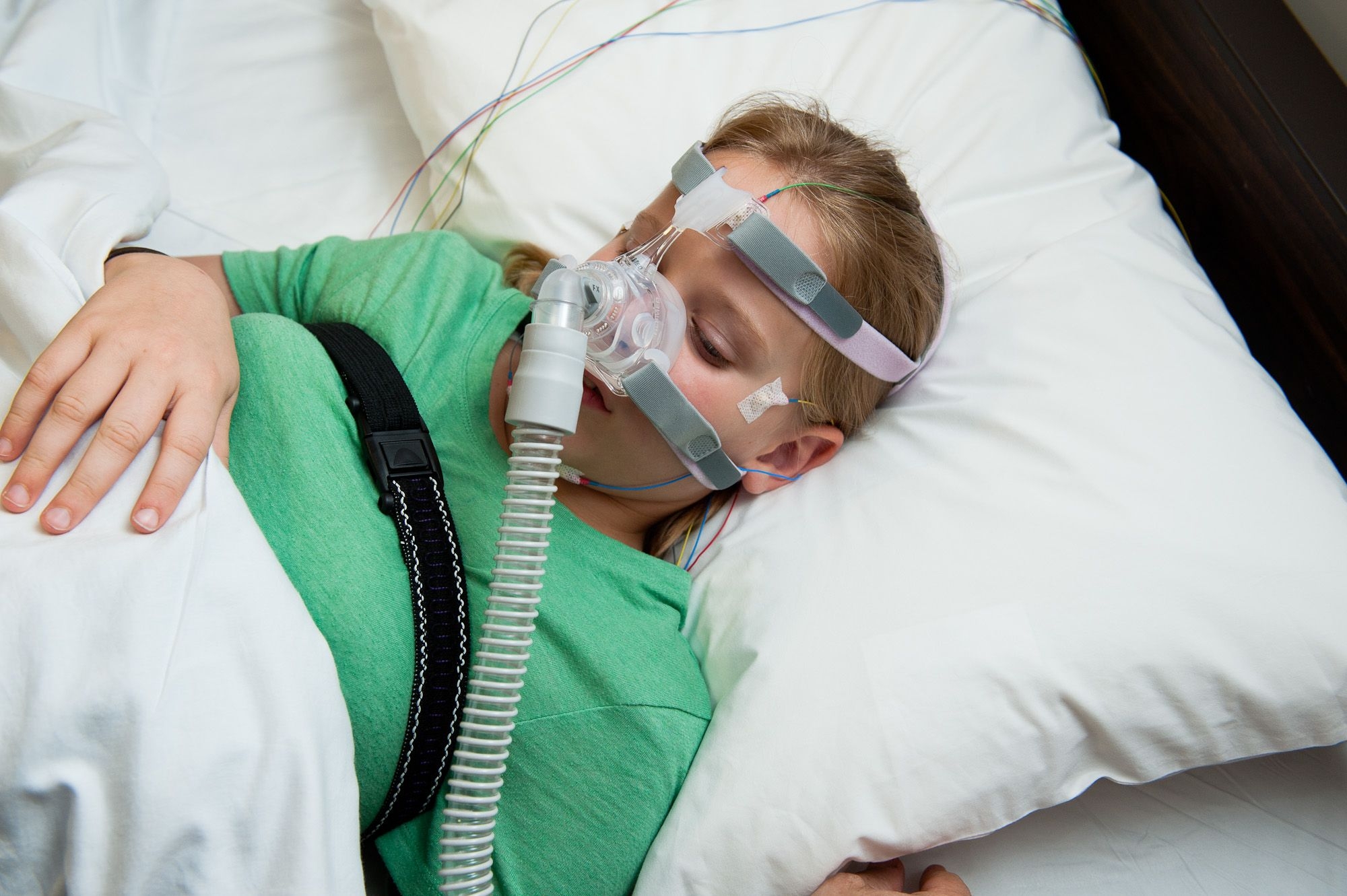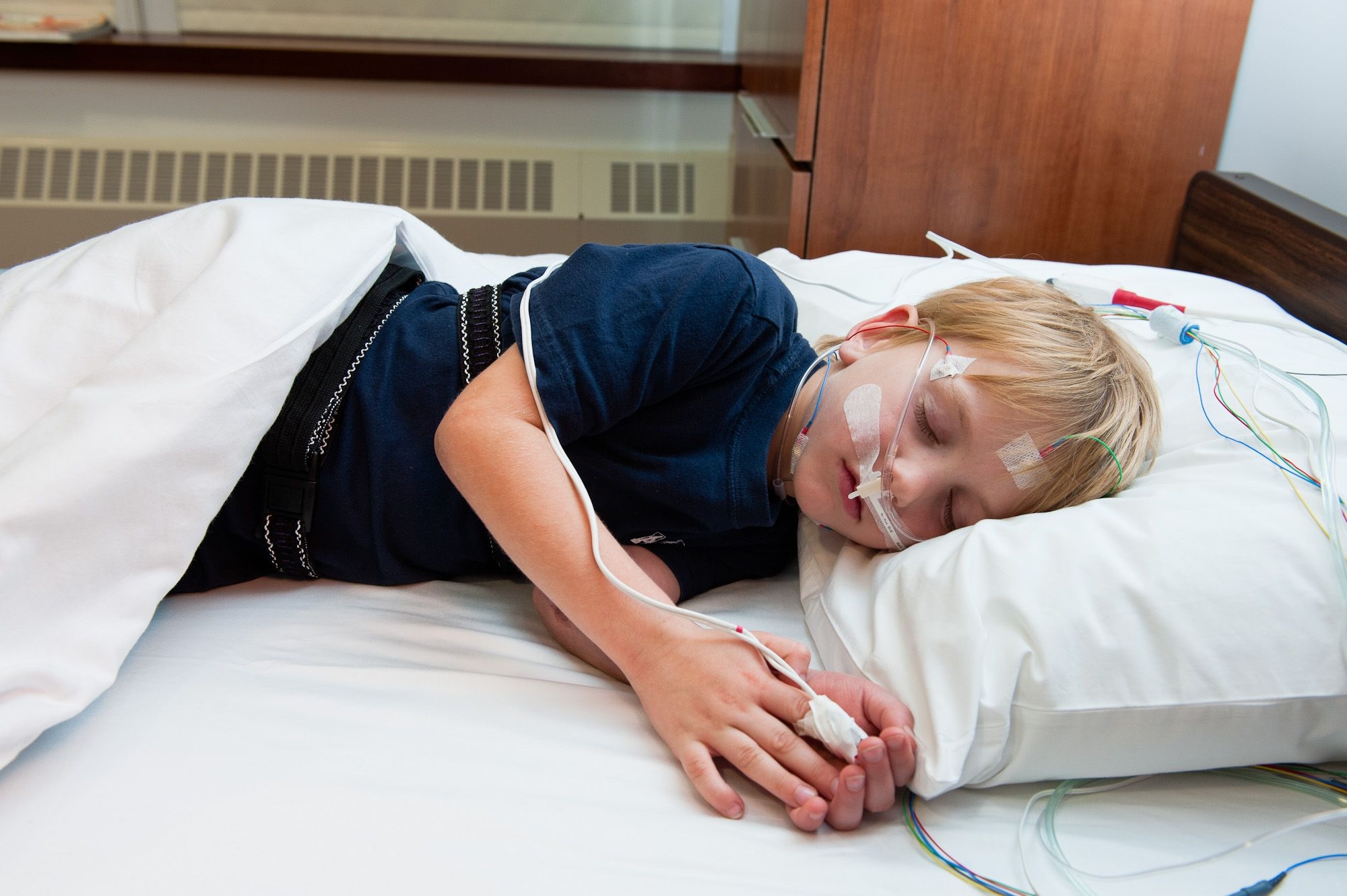

Sleep is an important part of child development and affects many body systems such as growth, heart function, learning abilities, behavior, and endocrine function, among others. However, many children experience interrupted sleep due to issues with falling asleep, staying asleep, waking up early in the morning, or simply just not getting enough rest.
Sleep disorders and breathing disorders during sleep are common and can affect a child’s overall well-being. These disorders may result in learning and behavioral disabilities, as well as long-term pulmonary, endocrine, and heart disease. Obtaining a diagnosis and managing sleep problems early may help children avoid consequences that can affect them in adulthood.
The Weill Cornell Pediatric Sleep and Breathing Disorders Center is affiliated with Children’s Hospital of New York at NewYork-Presbyterian. Our team of pediatric specialists works closely with families to ensure that children receive the rest they need to thrive. Our experts include pediatric specialists in sleep, behavioral sleep medicine, pulmonology, child development, neurology, psychology, gastroenterology, dentistry, otolaryngology (ENT), endocrinology, cardiology, and other specialists, as needed.
We diagnose and care for children with any type of sleep disorder, including (but not limited to):
Our team can aid in the evaluation and management of children with chronic lung diseases, degenerative muscle disease with chronic respiratory failure, hypoventilation syndrome, and respiratory control disorders.
Learn more about our location and how to prepare and facilitate the check-in process for your child's visit.
Our pediatric sleep lab offers a warm and friendly space tailored to children and adolescents, with:
Referrals to the Sleep Lab may be done by the child's pediatrician, ENT physician, neurologist or by a sleep specialist at the Pediatric Sleep Center. Often, it is important for sleep specialists to evaluate the child before scheduling a sleep study to tailor the study to the child, e.g., possible need for pH probe if acid reflux is a concern. Children 0-18 years that are otherwise healthy and are referred for a sleep study due to snoring in the context of enlarged tonsils/adenoids or obesity can be referred directly to the sleep lab through your pediatrician.
The clinic serves children of all ages, from infancy to adolescence. Each visit to the clinic includes evaluation and management by both a sleep specialist and behavioral specialist.
Sleep patterns in children affect the well-being of the child and the entire family. Sleep problems are highly prevalent in infancy; abnormal sleep is reported in almost half of infant well visits. If left untreated, sleep problems during infancy, such as insomnia and sleep fragmentation, may continue into the toddler years and beyond.
In fact, children are at risk for developing sleep issues across the various stages of their development. Toddlers, preschoolers, and school-aged children may experience nighttime fears, parasomnias (sleep-walking, talking, night terrors), nightmares, and sleep disorders related to poor sleep hygiene and inadequate limit setting.
With adolescence comes an additional risk of sleep problems, often brought on by lifestyle changes and the academic and social stressors that occur during the teenage years. Adolescents often experience poor sleep hygiene, delayed sleep phase, and insufficient sleep. Sleep disorders are often attributable to a combination of physiological, environmental, and psychosocial factors that may be best managed by a combined medical and behavioral approach.
For children and adolescents who experience more medically complex sleep problems, the Behavioral Sleep Disorders Clinic is affiliated with the Weill Cornell Pediatric Sleep Center, where subspecialty physicians (e.g., pediatric otolaryngologists, child neurologists) provide specialized consultation and treatment, as needed.
In addition, we offer a state-of-the-art 3-bed Pediatric Sleep Lab where patients undergo more extensive testing to further assess nighttime awakenings, snoring, and other sleep disorders.

We offer special expertise and support for technology-dependent children and their families.
Our team will:
At our pediatric sleep center, we perform the full range of studies required to diagnose a sleep disorder, including daytime and overnight studies.
Our approach to diagnosis begins with a comprehensive sleep history and physical examination. The definitive diagnosis is done by polysomnography, also known as an overnight sleep study. The study involves attaching leads to the child's body to monitor sleep quality and structure, breathing effort, oxygen saturation and carbon dioxide levels, as well as heart rhythms, muscle tone, and leg movements. A certified sleep technologist provides continuous monitoring during the study.
We also offer a Multiple Sleep Latency Test (MSLT), a test that is done during the day which quantifies sleepiness, and serves as the diagnostic test for narcolepsy.

Read the latest on wellness and preventive care for the whole family
View All PostsDr. Haviva Veler, the director of the Pediatric Sleep and Breathing Disorders Center discusses the symptoms of night terrors, how parents can help their child with night terrors, and when to seek help from an expert.
Pediatric psychologist at NewYork-Presbyterian/Weill Cornell Medical Center, Dr. Tara Mathews discusses recommendations for changing a child's environment after they fall asleep.
Pediatric psychologist at NewYork-Presbyterian/Weill Cornell, Dr. Tara Mathews gives four tips to improve sleep hygiene for children.